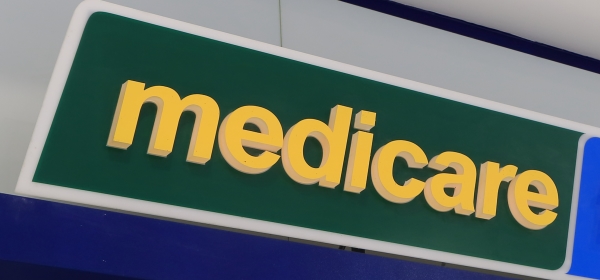The Medicare payments system, along with other government benefits, may become privatised if the government follows through with a controversial new policy change.
The Turnbull Government is examining the possibility of outsourcing the $42 billion Medicare payment system and pharmaceutical and aged-care benefits systems to the private sector, after reports that a well-developed proposal is being prepared for the May 2016 Budget.
Medicare payment transactions currently cost the government $42 billion each year. Health Minister Sussan Ley said the change will enable the Department of Health to work more efficiently, as it investigates ways to “digitise its transaction technology for payments to a more consumer-friendly and faster format.”
“Every day Australians use cards to make ‘tap and go’ payments, and apps to make payments, and yet Medicare has not kept up with these new technologies,” she said.
“This is part of our commitment to ensuring the government embraces innovation and is agile and responsive to changes in the digital economy,” she said.
Opposition Leader Bill Shorten attacked the privatisation scheme and accused the Turnbull Government of being “anti-Medicare.”
“The Liberals are always running around attacking Medicare. They did it in the 2014 Budget, they did it in the 2015 Budget… In their DNA they are anti-Medicare being the universal health provider,” Mr Shorten told reporters.
He went on to say that the Federal Opposition will continue to defend Medicare: “If Malcolm Turnbull wants to make the 2016 Federal Election a fight about Medicare, Labor will stand up for Medicare for all Australians.”
However, Ms Ley said the government is “committed to Medicare” and claimed Labor was intentionally trying to frighten the public to serve their own political agenda.
“Attempts by Labor and the CPSU to scaremonger as a negative for consumers shows their focus is on politics over patients.”
Given they have existing online payment and supply structures, Australia Post, Telstra, the big banks and eftpos providers are reportedly showing interest in the ‘Digital Payments services Taskforce’, which was developed by bureaucrat John Cahill. Some foreign multinational companies, including Serco, Fuji-Xerox and Accenture may also put in bids.
Accountants KPMG, PricewaterhouseCoopers, Ernst & Young, Deloitte McKinsey and Boston Consulting will all submit applications to design the business case for the possible privatisation.
Read more at theage.com.au
Opinion: A risky game
If the government goes through with the privatisation of Medicare, PBS and aged-care payments, it will be the first time the private sector has delivered a national service subsidised by the government.
It would mean shifting the $42 billion operation to a big company, possibly outside Australia. Australians are protective of their private information, and outsourcing the payment system overseas will give people no choice but to allow their personal information to be given over to an external source.
Most importantly, the cost of running the payments system would not reduce. That $42 billion must come from somewhere, and you can bet that whichever private company takes over won’t be fronting the money. Additionally, this proposed change will almost certainly mean the loss of thousands of public service jobs around the country.
The Turnbull Government wants to find a new way to deliver payments and hopefully save itself some money – and it believes outsourcing Medicare is the key. But our government is on the precipice of launching what many Australians will see as a huge attack, and in doing so, it has also opened the floodgates for the Federal Opposition to jump in and use it as a political campaigning tool.
While surrendering some of the costs of running Medicare to a private company may prove beneficial in the short term, handing over the reins of such an essential service to a third party is a risky game. The more government operations are run by the private sector, the more the nation and its citizens lose control of their lives.
One critical point to make is that the private sector is driven by two objectives: profit and return to its shareholders, rather than care for its customers. When we consider this, the fact that Medicare (which already owns a monology on public health services) could become a feather in the cap of a big company or even a multinational becomes even more unsavoury.
Get ready for another wild ride, folks.
What do you think? Is the Turnbull Government making a mistake with this move? Would you support or the privatisation of Medicare if it meant the government could put the $42 billion saving to better use? Or do you believe that the Turnbull Government would be handing the Opposition just another stick with which to beat them in the Federal Election?

